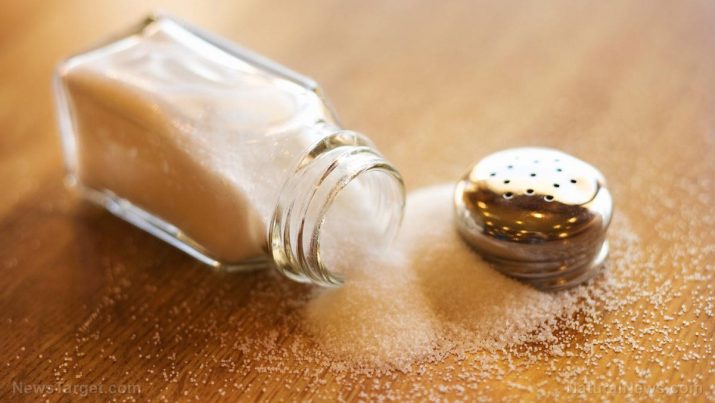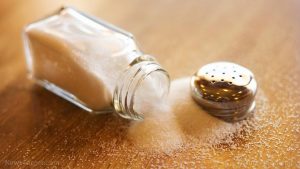- Fresh.news
- Superfoodsnews.com
Salt – sources, health benefits, nutrients, uses and constituents at NaturalPedia.com
Tuesday, September 12, 2017 by Earl Garcia
http://www.naturalpedia.com/salt-sources-health-benefits-nutrients-uses-and-constituents-at-naturalpedia-com.html

Salt is a naturally occurring substance that can be found in most foods. It is a highly regarded kitchen commodity that has been traditionally used to flavor dishes and preserve food. According to the Health Line website, common table salt is made up of 60 percent chloride and 40 percent sodium. Salt can be harvested by evaporating seawater and mineral-rich water or through processing in salt mines.

List of known nutrients
Common table salt contains high levels of important nutrients that fend off numerous ailments. An entry posted on the Nutrition Value website notes that common table salt may contain the following nutrients:
- Beta-Carotene
- Calcium
- Copper
- Fluoride
- Folate
- Iron
- Lutein
- Magnesium
- Manganese
- Potassium
- Selenium
- Sodium
- Vitamin C
- Zinc
Medicinal uses for salt
Salt is an essential part of maintaining a healthy electrolyte balance in the body. The essential minerals in salt promote fluid balance, muscle function, and nerve transmission.
Table salt is beneficial to the bones too. An article posted on the Wiki Home Nutrition website noted that salt is loaded with calcium that promotes bone density and prevents the onset of osteoporosis. The rich folate content in table salt also contributed to the ingredient’s bone-enhancing properties.
While previous studies may argue, salt is actually known to promote heart health when taken in healthy amounts. Salt contains active ingredients that help curb bad cholesterol levels and strengthen the body’s overall cardiovascular profile. Trace levels of vitamin C in table salt are also touted to inhibit oxidative stress and mitigate the risk of cardiovascular damage.
Likewise, taking table salts may help lower the odds of developing cancer. Common salt is found to posses powerful phytochemical compounds that prompt to body to boost cellular protection. The antioxidants found in table salt — which include beta-carotene and lutein — are also shown to possess anti-carcinogenic properties that fend off cancer onset.
The vitamin C content in table salt is known to possess anti-tumor properties that keep free radicals and oxidative stress at bay. Folate, another essential compound found in salt, is touted to lower the odds of breast cancer in women. In addition, table salt is touted to relieve rheumatoid arthritis.
Table salt is shown to promote digestive health too. According to the Organic Facts website, salt contains curative properties that alleviate sore throat, ulcers, and swollen gums. Common salt is found to improve dental health as well. The flouride in salt is shown to prevent the onset of acidic damage or cavity growth. Likewise, salt is known to maintain healthy insulin levels in the body. This means that adequate salt intake may help prevent the onset of diabetes.
People with various skin diseases may also greatly benefit from using salt. Table salt has long been used in the cosmetic industry as an exfoliating agent, which effectively removes dead skin, promote circulation and improve skin tone. Salt is also found to alleviate symptoms of psoriasis.
Other conditions addressed by table salt include:
- Cystic Fibrosis
- Hyponatremia (Low Sodium in the Blood)
- Muscle Cramps
- Sun Stroke
Body systems supported by salt
Salt is notably beneficial in maintaining healthy muscles and nerves. Likewise, table salt protects the heart against unwanted damage and fends off various conditions of the digestive system. Salt is also shown to improve blood circulation and support skin health.
Ways to use salt
There is more to salt than the usual tasty flavor its brings to many dishes. Regular salt can be incorporated with a variety of other ingredients to help make it more exciting. An article posted on the Mommy Potamus website has curated some of the most interesting salt mixes across the web.
Where to learn more
Summary
Salt prevents cancer, heart disease and diabetes.
Salt relieves digestive issues, muscle conditions, and skin diseases.
Salt staves off cystic fibrosis, sun stroke, and hyponatremia
Salt supports both the muscular and nervous systems.
Salt maintains a healthy heart and overall digestive profile.
Sources include:
Tagged Under: Tags: salt






